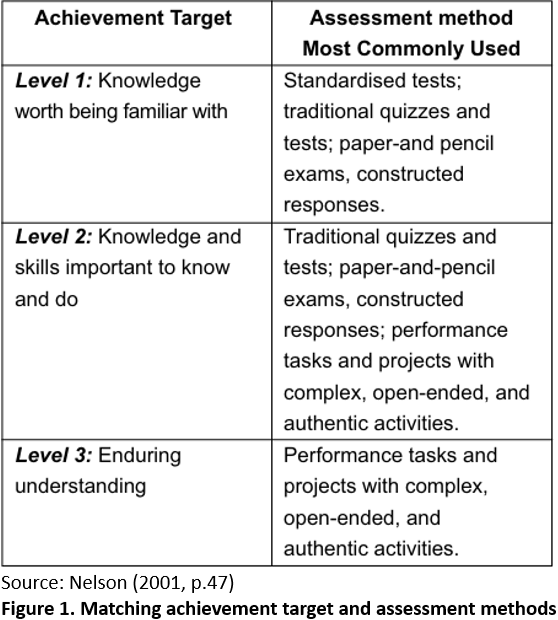
Expectations of students
 المؤلف:
Sue Trinidad & Robert Fox
المؤلف:
Sue Trinidad & Robert Fox
 المصدر:
Enhancing Teaching and Learning through Assessment
المصدر:
Enhancing Teaching and Learning through Assessment
 الجزء والصفحة:
P384-C32
الجزء والصفحة:
P384-C32
 2025-08-08
2025-08-08
 468
468
Expectations of students
At the beginning of the module students are asked to reflect on, write down and then discuss their expectations with peers. Students then upload their combined expectations online to ILN for other groups to review. These uploaded student expectations for the course are also used by the lecturers to fine tune the module to better match students stated needs. Overall however, the desire of most of the Masters students is to improve their own understanding of information technology (IT) and its potential use in supporting their own teaching whilst providing motivation and new opportunities for their own students to learn. The opportunities provided within the module are intended therefore to not only inform students of new ways of teaching and learning with technology but to 'walk-the-talk', offering students an opportunity to experience learning new things in new ways, which are pedagogically appropriate as well as being innovative. At the same time, there is an explicit expectation amongst some students, that technology per sue, can somehow improve both teaching and learning and that by having access to technology, classroom practices will improve as will their teaching and their students' learning. This latter expectation is likely to be held more by students with less teaching experience and in particular, those teachers that see their primary role as transmitting facts and skills to their students (Watkins & Biggs, 2001). There is also a desire to improve qualifications in order to improve their chances of promotion or in gaining a better job. A number of student undertaking the course already have Master's degrees in other areas and several students hold doctoral degrees.
The present school system in Hong Kong is highly competitive, with a strong sense of hierarchy within the structure. Secondary schools are divided into 'bands' of ability. Students are chosen for schools based on the results of a normative referenced examination system, where students in the lower band can expect to fail. Therefore, these student-teachers are often more comfortable with materials that encourage students to absorb information from them and essays or tests to see if they can regurgitate facts as that has been the norm in their education system. As stated in Teaching Effectively in Higher Education in Hong Kong (TEHE) (2002) "Hong Kong students are often perceived as particularly exam-oriented in their study and that they prefer spoon-feeding to pass exams rather than learning for learning's sake" but given the opportunity to learn through rich assessment tasks, as outlined in Figure 1, students can reach higher achievement targets that enable knowledge and skills important to know and do, and enduring understanding.

 الاكثر قراءة في Teaching Strategies
الاكثر قراءة في Teaching Strategies
 اخر الاخبار
اخر الاخبار
اخبار العتبة العباسية المقدسة


